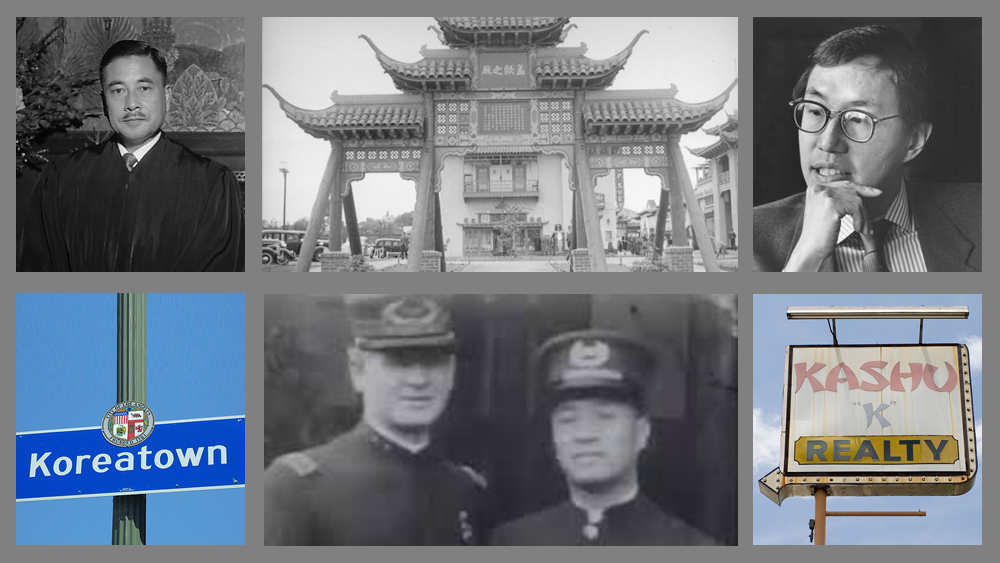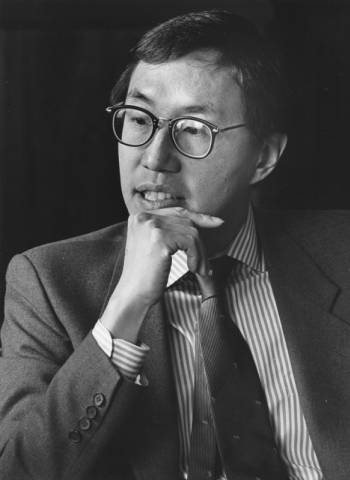Asian American & Pacific Islander Heritage Month - Los Angeles' Pioneers and Trailblazers
by Pebbla Wallace, LACHS Board Member
In May, Los Angeles celebrates Asian American & Pacific Islander (AAPI) Heritage Month. In doing so, the LACHS would like to recognize the historical and cultural contribution both as a cultural group and as individuals to the City of Angels.
The term AAPI is commonly used today to describe the entire continent of Asia (including East, Southeast, and South Asia) and the Pacific Islands (Melanesia, Micronesia, and Polynesia). According to the U.S. Census, the United States has over 24 million people of AAPI descent – with California, New York, and Hawaii with the largest population. The diverse AAPI communities in Los Angeles include (but are not limited to) Chinatown, Little Tokyo, Cambodia Town, Thai Town, Koreatown, Filipinotown, and Little Bangladesh.
The month of May was first chosen to commemorate the immigration of the first Japanese to the United States (May 7, 1843), and the anniversary of the completion of the transcontinental railroad (May 10, 1869), which was largely built by Chinese immigrants. A bill in the House was first introduced in 1977 but originally failed. In 1978 the House passed a Resolution of Congress that requested the president proclaim a week during the first 10 days of May Asian/Pacific American Heritage Week. From 1980 to 1990, each president passed an annual proclamation designating that week. Then in 1990, Congress expanded the observance from a week to a month in May, and in 2009 it was renamed Asian American and Pacific Islander (AAPI) Heritage Month.
Judge John Aiso
Photo: Public Domain
HON. JOHN FUJIO AISO – First AAPI Judge in Los Angeles
John Aiso was born in 1909 in Burbank, California, and graduated from Hollywood High School in 1926. He graduated from Brown University in 1931 (the first AAPI person to graduate from Brown), and graduated from Harvard Law school in 1934. After graduation, he entered private practice in Los Angeles, until he was drafted into the U.S. Army in 1941. Due to his proficiency in the Japanese language, he was transferred to the Military Intelligence Service Language School as an instructor. He later became the Director of Academic Training (a position only held by Lieutenant Colonels). He was promoted to the rank of Major and then to Lt. Colonel - becoming the highest-ranking Japanese American in the U.S. Army during WWII. After the war, he returned to private practice in Los Angeles. In 1952, he served as a Superior Court Commissioner before being appointed to the Los Angeles Municipal Court in 1953, and then was elevated to the Los Angeles Superior Court in 1957. He was later served in the California Court of Appeal in downtown Los Angeles. He is the first AAPI Judge in Los Angeles and the contiguous United States.
John Aiso received various honors during his lifetime including the President’s Legion of Merit Award (1965), for his service during WWII; in 1991 he was inducted into the Military Intelligence Corps Hall of Fame; and the John Aiso Library at the Military Intelligence Service Language School, where he served as director, was named after him to honor his contribution.
Judge Aiso died on December 29, 1987, at age 78 from injuries he sustained during a mugging. A block long street located in Little Tokyo between Temple and 1st Street has been renamed after Judge Aiso in his honor.
Michael Woo (1988)
Photo Credit: Paul Chinn/Los Angeles Public Library
MICHAEL K. WOO – First AAPI Los Angeles City Council Member
Michael was born in Los Angeles in 1951 – a first-generation Chinese American. His father left China in 1940 to study at UCLA. Due to WWII the family was separated, but reunited after the war in Los Angeles. Michael graduated from the University of California, Santa Cruz, and then graduate school at the University of California, Berkeley with a Masters in City Planning.
After working for California State Senator David Roberti from 1973 to 1980, he won two Los Angeles City Council seats (1985-1993) – becoming the first Asian American elected to the Los Angeles City Council (and the youngest). As a city council member, he led the Hollywood Redevelopment Plan and was involved in Hollywood’s revitalization plan. After serving in the City Council, he ran for mayor and lost by a small margin to Richard Riordan.
He later taught briefly at UCLA before becoming the Dean of the Cal Poly Pomona College of Environmental Design from 2009 to 2019. He was the second longest-serving Dean.
Michael is the Co-Chair of the Steering Committee designing a memorial for the 1871 Chinese Massacre (see article on Chinese Massacre).
Sei Fujii – First AAPI Lawyer (but prohibited from obtaining a law license)
Sei Sei Fujii was born in Shūtō, Japan in 1882. He moved to the United States and later to Los Angeles in 1903 where he studied law at the University of Southern California and graduated from USC Gould School of Law. Due to laws that prohibited Asian Americans from becoming citizens and thus restricted them from becoming lawyers he was unable to take the bar test or acquire his law license. He started the fight for civil rights for Japanese immigrants with his friend and fellow lawyer who had a license.
After the Japanese attack on Pearl Harbor in 1942, Sei, like 120,000 other Japanese Americans, was arrested and imprisoned at a detention camp. He was finally released from the camp in 1946. In 1952, when the U.S. Supreme Court finally ruled that the laws prohibited citizenship of Japanese and other Asians as unconstitutional, Sei was finally able to acquire his citizenship at the age of 73. Unfortunately, he died 51 days later of a heart attack. In 2017 the California Supreme Court posthumously granted Sei a law license – 63 years after his death.
Chinatown Entrance on Broadway designed by You Chung Hong
Photo Credit: Herman Schultheis / Los Angeles Public Library
You Chung Hong – First AAPI Lawyer from Los Angeles Admitted to the California Bar
You Hong was born in San Francisco in 1898. He moved to Los Angeles after high school where he worked as an interpreter for the U.S. Government. While attending USC Law School, he took and passed the California Bar in 1923. He later graduated from law school in 1924. He is the second Chinese American to be admitted to the California Bar, but the first Chinese American Angeleno to be admitted to the bar (Chan Chung Wing from San Francisco was the first in 1918).
Besides being an attorney in Los Angeles specializing in immigration issues, he was especially active in trying to overturn the Chinese Exclusion Act and testified before Congress regarding this issue. He was also an active community leader and played a key role in the development of the new Chinatown. He designed various buildings in Chinatown, and designed the main entrance gate located on Broadway. You Hong died in 1977.
Hi Duk Lee – The Father of Koreatown
Hi Lee was born in South Korea in 1939. He earned a degree in chemical engineering in Korea and later moved to West Germany to find work. In 1968, Lee emigrated to Los Angeles – first working as a factory worker, and then as a welder. After gathering enough money, he established the first Korean-owned grocery in Los Angeles. He later built additional grocery stores, restaurants, a hotel, and various other businesses in this new Korean Village. His restaurant, the VIP Palace, was the first building in Los Angeles to feature traditional Korean architecture. Hi’s restaurant and other businesses became the beginning of Koreatown. Lee helped attain a police station in Koreatown and advocated to get the city to officially designate the area as “Koreatown”. This included the installation of a Koreatown sign on the Santa Monica Freeway and street signs bordering the area. In a June 2001 article in the Los Angeles Times, Lee stated: “I planned to make Koreatown. Chinese people have Chinatowns everywhere: New York, San Francisco, Los Angeles, Montebello. But there was no Koreatown.”
Lee was so revered by the community that when he died in March 2019, hundreds of people gathered in Koreatown to honor his life.
Kazuo Inouye – Fighting Real Estate Redlining Discrimination in Los Angeles
Kazuo, a second-generation Japanese American, was born in Los Angeles in 1922 and grew up in the Boyle Heights area. Like tens of thousands of other Japanese Americans on the west coast, he was incarcerated in an internment camp during part of World War II. He was later drafted into the U.S. Army's segregated, all-Japanese American unit (442nd Regimental Combat Team).
After the war, he returned to Los Angeles where he started a real estate business. At this time various parts of Los Angeles still had racial covenants. These were restrictions in property deeds that prohibited properties from being occupied or owned by persons of color. But during the Shelley v. Kraemer landmark decision in 1948, the U.S. Supreme Court ruled that racial covenants were unconstitutional. But that did not prevent developers and agents from refusing to sell to Asian Americans, Black Americans, and other people of color.
Kazuo was motivated by his experience of racial discrimination, and he made it his top priority to open racially restricted neighborhoods to people of color. Many areas such as Leimert Park, Venice, Culver City, Baldwin Hills, Monterey Park, and Crenshaw were all restricted areas at the time. When Kazuo started Kashu K. Realty in 1947, he hired a diverse staff, and began putting ads in various ethnic newspapers throughout Los Angeles. He sold a record number of homes to people of color. Kazuo died in 2002.
Lung Yep (Right) (1913) / First AAPI Police Officer in the U.S. and LAPD
Pubic Domain
LUNG YEP – First AAPI Police Officer in Los Angeles
Little is known about Lung Yep, the first AAPI Police Officer of Chinese ancestry. On November 17, 1913, Los Angeles Police Chief Charles Sebastian appointed him as an LAPD Officer covering the Chinatown beat. Based on various articles in local Los Angeles newspapers, Lung also owned and managed several businesses in both Los Angeles’ and San Francisco’s Chinatown including the Sing Fat’s Company and store, the Oriental Café on Main Street, and leased various buildings and hotels in downtown Los Angeles.










